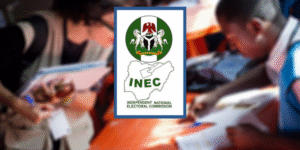
President Bola Ahmed Tinubu has called for a fairer and more inclusive global framework on climate action, financial systems, and healthcare, urging BRICS nations to lead a new era of global equity, especially for emerging and developing economies.
Speaking at the 17th BRICS Summit in Rio de Janeiro, Brazil, President Tinubu highlighted Nigeria’s ongoing efforts to accelerate renewable energy adoption, combat environmental degradation, and achieve universal health coverage, aligning with the global Sustainable Development Goals (SDGs).
“In Nigeria, we are taking bold steps to mainstream climate action, promote nature-based solutions, strengthen urban resilience, champion South-South cooperation, and expand renewable energy infrastructure,” Tinubu stated.
The Special Adviser to the President on Information and Strategy, Mr Bayo Onanuga, disclosed this in a statement issued on Monday. Tinubu emphasised the need for reforms in global governance, financial systems, and healthcare structures to ensure inclusivity and justice for low-income and vulnerable nations, particularly across Africa.
He decried the paradox that Africa, despite contributing the least to global carbon emissions, remains the most adversely affected by the climate crisis.
Calling for justice rooted in equitable financing, sustainable technology transfer, and targeted climate solutions, Tinubu noted that initiatives such as the African Carbon Market Initiative and the Great Green Wall exemplify Africa’s proactive stance. He expressed optimism that COP-30 would advance this shared agenda.
“Nigeria will not be a bystander in global decisions on debt restructuring, climate justice, or healthcare equity,” Tinubu affirmed. “We are committed to building a future that reflects the needs and aspirations of our youthful population, which constitutes 70 per cent of our citizens.”
He further stressed that non-communicable diseases must remain a global public health priority and called on BRICS to become not only a voice for emerging economies but also a platform for sustainable, self-reliant, and inclusive solutions.
The Nigerian delegation to the summit included the Minister of Foreign Affairs, Yusuf Tuggar, and the Minister of Finance, Wale Edun.
Nigeria formally became a BRICS partner nation on 17 January 2025 under Brazil’s pro tempore presidency, joining eight other nations, including Belarus, Cuba, and Thailand. This partner-country category was created during the 16th BRICS Summit in Kazan, Russia, in 2024.
Onanuga noted that Nigeria’s inclusion reflects its growing influence as Africa’s largest economy and the world’s sixth-most populous country, with shared interests in global governance reform and South-South cooperation.
“President Tinubu’s participation marks a pivotal moment in Nigeria’s re-engagement with global development platforms, asserting leadership in the push for a just and equitable international system,” Onanuga concluded.







